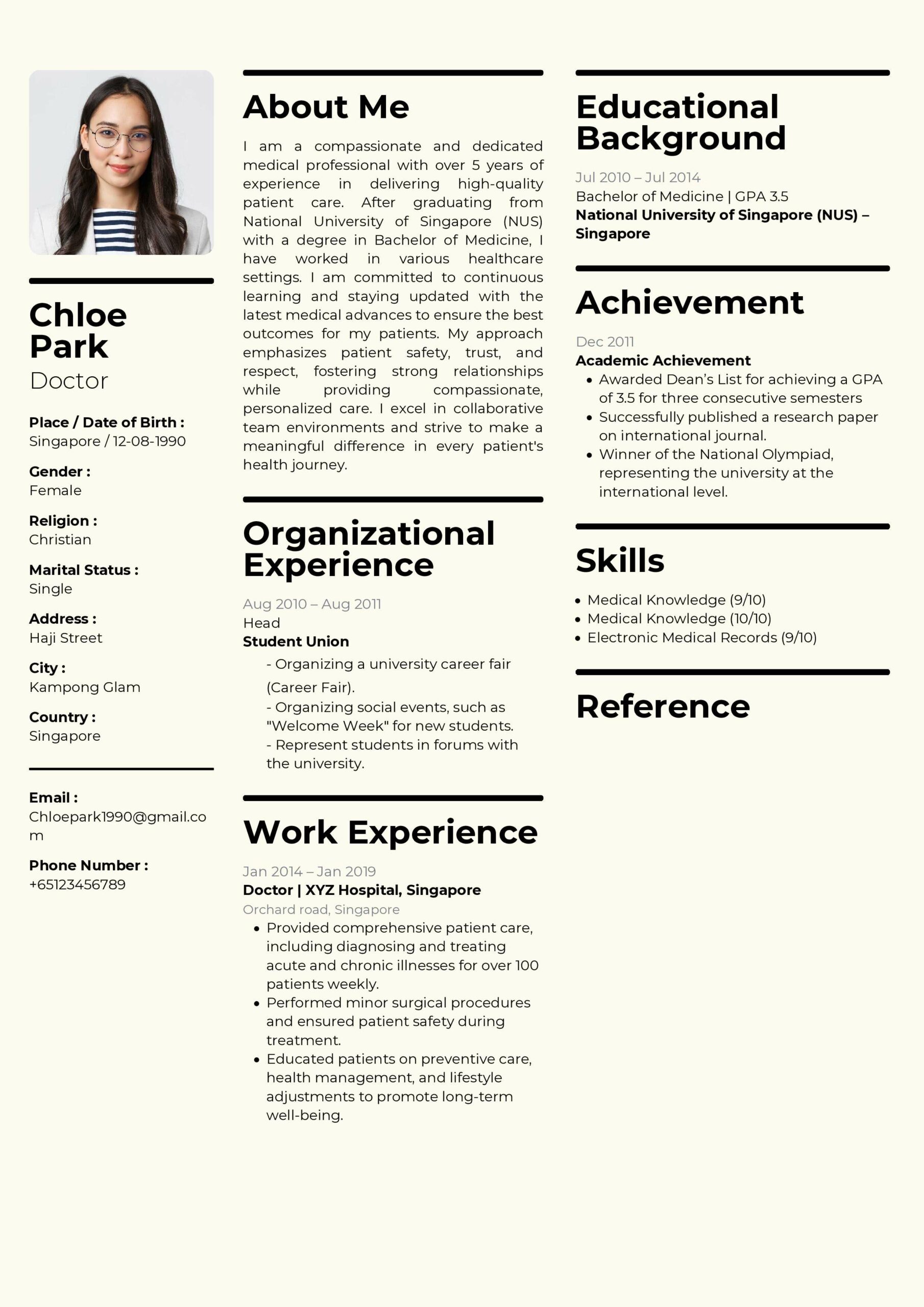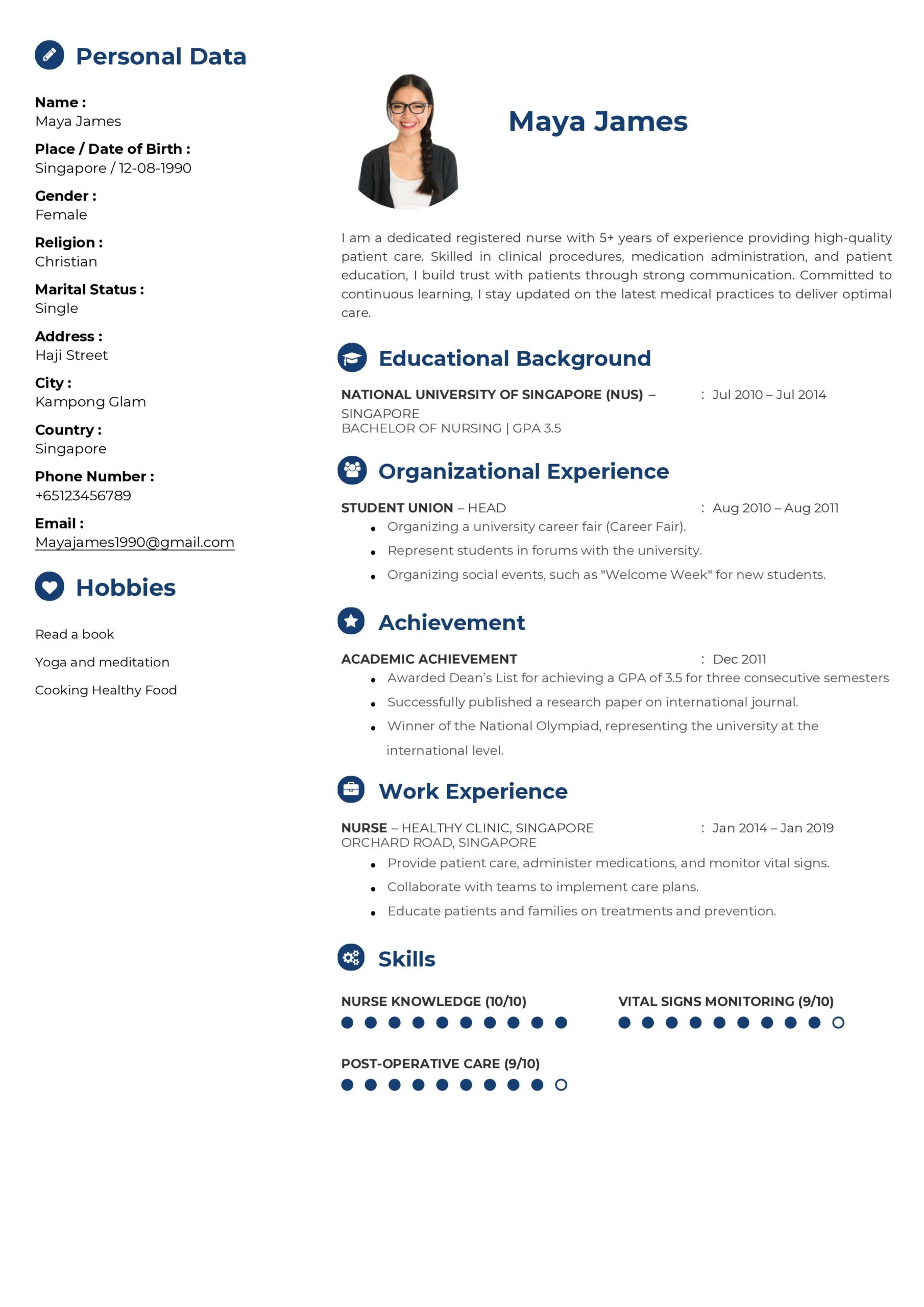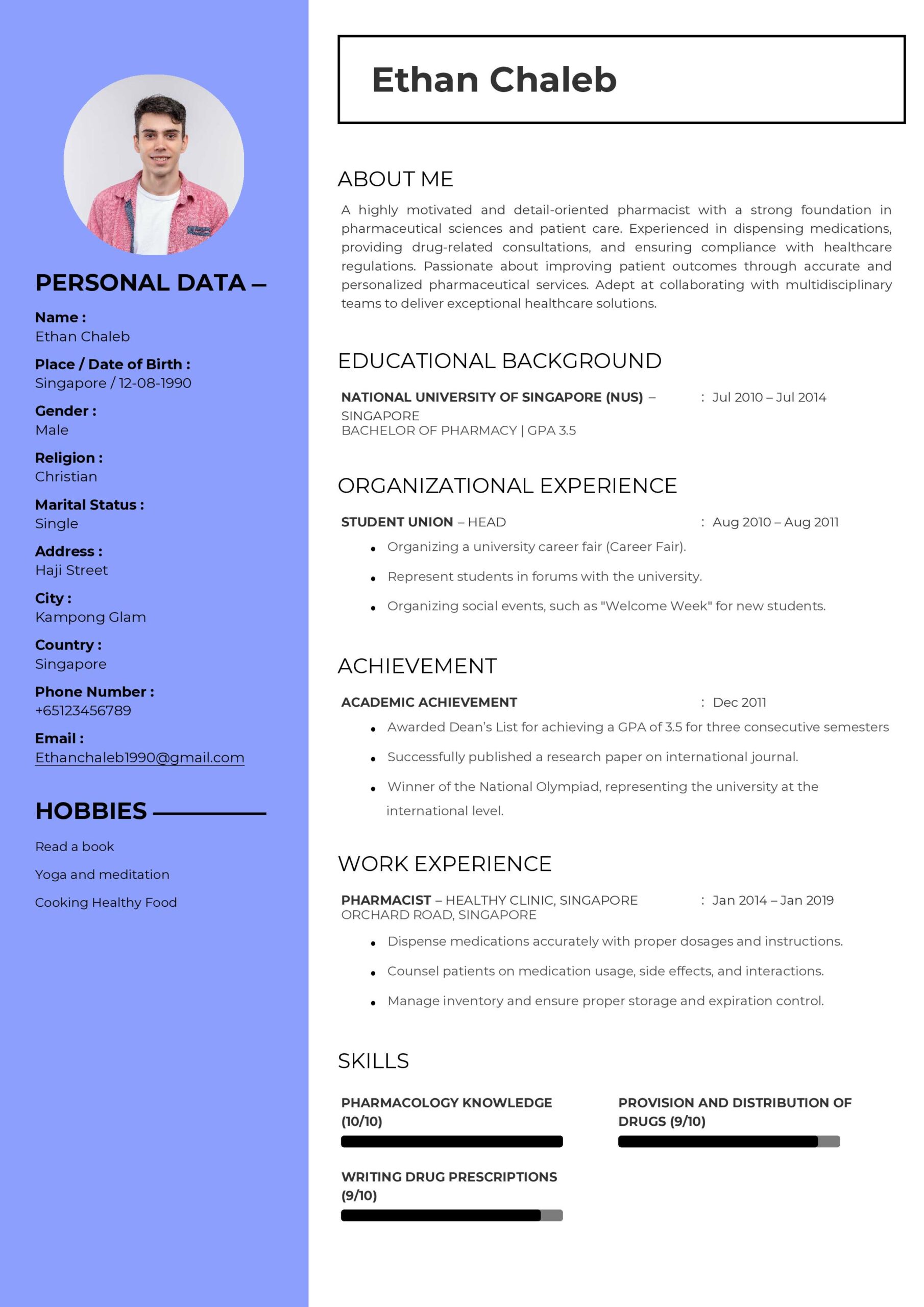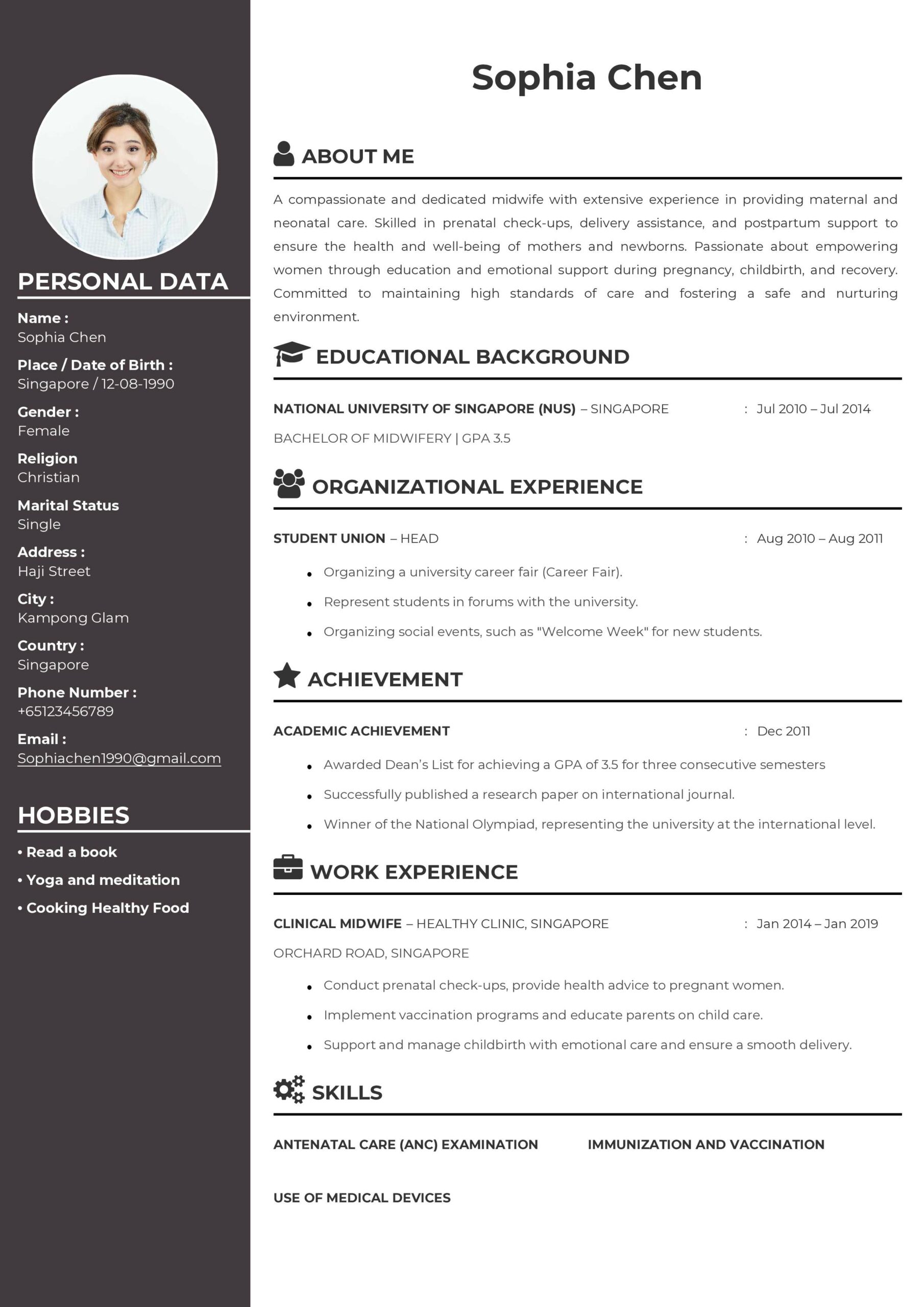Entering the job market as a recent medical graduate—whether you’re a doctor, pharmacist, or nurse—can feel overwhelming, especially when you’re unsure how to write a CV letter that stands out. With limited work experience, it’s natural to wonder how to present yourself effectively. Don’t worry—this guide will walk you through the process of writing a CV letter that highlights your strengths and catches the attention of potential employers. Let’s dive in!
What is a CV Letter?
A CV (Curriculum Vitae) letter is a document that summarizes your education, clinical experience, skills, and professional achievements. For medical graduates, it’s your opportunity to showcase your academic background, internships, research, and any relevant training. Think of it as your personal marketing tool—it should convince employers or residency programs that you’re the right fit for the role.
Step-by-Step Guide on How Write a CV Letter for Medical Graduates
1. Start with a Strong Header
Your CV should begin with your name, contact information, and a professional email address. Ensure your email is simple and appropriate (e.g., [email protected]). Avoid using nicknames or unprofessional handles.
2. Write a Compelling Personal Statement
This is a short paragraph (3–4 sentences) at the top of your CV that summarizes who you are, your medical background, and what you’re looking for. For example:
“A dedicated and compassionate medical graduate with a Doctor of Medicine (MD) degree, passionate about patient care and evidence-based medicine. Completed clinical rotations in internal medicine, pediatrics, and emergency care. Seeking a residency position to further develop clinical expertise and contribute to a dynamic healthcare team.”
3. Highlight Your Education
Your education is your strongest asset as a medical graduate. List your degree, university, graduation date, and any academic achievements (e.g., honors, scholarships, or relevant coursework). If you have a strong GPA, include it—otherwise, you can leave it out. Also, mention any board certifications or licensure examinations you’ve passed (e.g., USMLE, NCLEX, or Pharmacist Licensure Exam).
4. Showcase Clinical Experience
Since hands-on experience is crucial in the medical field, detail your clinical rotations, internships, and residencies. Include the hospital/clinic name, department, duration, and key responsibilities. For example:
Clinical Rotations – Internal Medicine
XYZ Hospital, January – March 2023
- Assisted in diagnosing and managing chronic conditions such as diabetes and hypertension.
- Conducted patient assessments and presented cases during rounds.
- Collaborated with multidisciplinary teams for patient care plans.
5. List Relevant Skills
Even without extensive professional experience, you have valuable skills that employers or residency directors look for. These can include:
- Medical Skills: Patient assessment, diagnosis, medical procedures, case documentation.
- Technical Skills: Electronic medical records (EMR) systems, laboratory procedures, pharmaceutical calculations.
- Soft Skills: Communication, teamwork, problem-solving, empathy, adaptability.
Tailor this section to the job or residency you’re applying for by matching your skills to the requirements listed in the job description.
6. Include Research, Publications, and Conferences
If you’ve participated in research projects, published articles, or attended medical conferences, highlight them in your CV. This demonstrates your commitment to lifelong learning and contribution to the medical field. For example:
Research Assistant – XYZ University, 2022
- Conducted research on antimicrobial resistance in hospital settings.
- Co-authored a paper published in the International Journal of Medicine.
- Presented findings at the National Medical Conference 2023.
7. Add Certifications & Professional Memberships
List any additional certifications that enhance your qualifications, such as:
- Basic Life Support (BLS)
- Advanced Cardiac Life Support (ACLS)
- Pharmacy Practice Certification
- Nursing Specialty Certifications
- Membership in professional organizations (e.g., AMA, APhA, ANA)
8. Keep It Concise and Well-Formatted
Your CV should ideally be one to two pages long. Use clear headings, bullet points, and a professional font like Arial or Times New Roman. Avoid clutter and ensure there’s plenty of white space to make it easy to read.
9. Proofread and Edit
Typos and grammatical errors can make a bad impression. Read your CV carefully, use tools like Grammarly, and ask a mentor or colleague to review it.
CV Examples for Medical Graduates
Doctor CV Example

Nurse CV Example

Pharmacist CV Example

Midwife CV Example

Tips for Recent Medical Graduates
Breaking into the medical field as a fresh graduate can be challenging, but a well-structured CV can make a difference. Here’s how to make your CV stand out:
- Highlight Transferable Skills – Even volunteer work, part-time healthcare jobs, or teaching assistant roles can demonstrate valuable skills like leadership, communication, and problem-solving.
- Use Strong Action Verbs – Start bullet points with words like “assessed,” “diagnosed,” “managed,” or “conducted” to make your experiences sound impactful.
- Tailor Your CV – Customize it for each application by emphasizing skills and achievements that match the job or residency program.
- Showcase Clinical & Extracurricular Activities – Include medical student organizations, leadership roles, and community service initiatives.
- Add Certifications & Key Skills – List relevant certifications like BLS, ACLS, or research training.
- Keep It Clear & Error-Free – Use a clean format, keep it concise, and proofread to avoid typos or grammatical errors.
Even with limited professional experience, a well-structured CV that highlights your strengths can help you make a strong impression on employers or residency programs!
Common Mistakes to Avoid
Many medical graduates make the mistake of using a generic CV instead of tailoring it to each job or residency, making their application less compelling. Other common mistakes include:
- Including unnecessary personal details (e.g., age, hobbies) that don’t add value.
- Using overly complex medical jargon that makes the CV harder to read.
- Neglecting to proofread, leading to typos and formatting errors.
- Failing to highlight relevant certifications or professional memberships.
To stand out, customize your CV, keep it relevant, and use clear, professional language.
If you’re wondering <strong>how write a CV letter that stands out as a recent medical graduate, focus on your education, clinical experience, and skills. Even with limited work experience, a well-crafted CV that showcases your potential can make a strong impression on hospitals, clinics, and healthcare institutions.
Pair your CV letter with a strong cover letter, confidence, and a proactive attitude—your dream job in the medical field is just around the corner!
Need More Tips ?
Also read How Long a CV Should Be?
Good luck, and happy job hunting!








